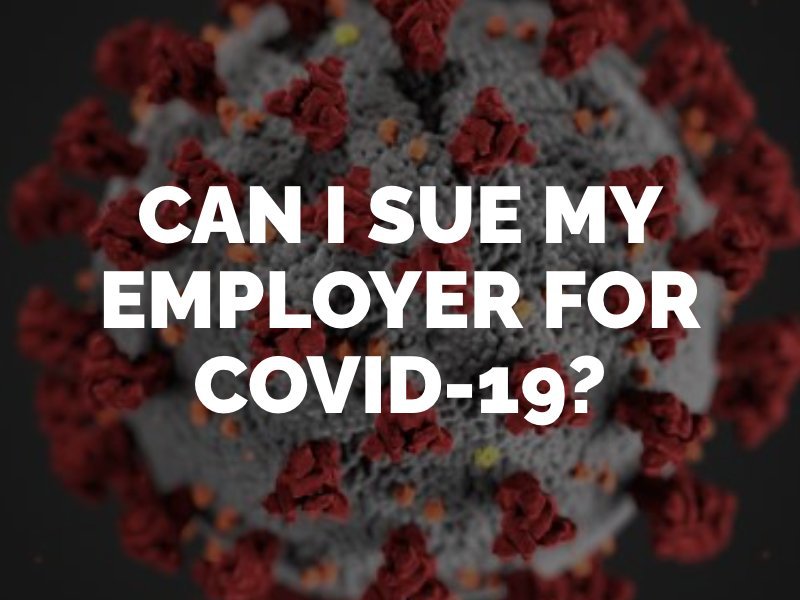Can You Sue Your Employer if You Were Exposed to COVID-19 at Work?
The COVID-19 virus, also known as the coronavirus, has infected millions of people and taken more than 600,000 lives in the U.S. alone. Although some employees were given the choice to work remotely or use unemployment to stay at home and safely social distance, essential workers had to continue their in-person positions. If you were exposed to COVID-19 at work because your employer failed to take reasonable steps to protect you, you could have grounds to sue your employer or file a workers’ compensation claim for your illness.

What Was the Source of Exposure?
The workers who are most at risk of COVID-19 exposure at work are those in the health care industry, such as doctors and nurses in COVID-19 wards. However, workers in any industry can suffer exposure on the job, including those who work at grocery stores, offices, warehouses and retail outlets. Exposure can come from contact with infected coworkers, supervisors, customers, clients and contractors.
If you believe you were exposed to COVID-19 at work, you may have a legal remedy available. However, there are legal challenges involved in obtaining financial compensation from an employer, either through the workers’ compensation insurance system or a lawsuit. One of the first steps is proving that you caught the coronavirus from job-related activities. You must be able to trace your illness back to contact with an infected person at work. This may be easier to prove if you work in a high-risk environment.
Did Your Employer Fail To Protect You?
The next step if you wish to bring a lawsuit against your employer for contracting COVID-19 or for the death of a loved one is proving that your employer negligently or knowingly failed to protect you from exposure. A COVID-19 lawsuit is based on the legal theory that a person or a party failed to adhere to the accepted duties of care and that this is what caused or contributed to the victim contracting the coronavirus.
If you cannot prove that your employer failed to protect you, you may only be able to recover through the workers’ compensation system. Common examples of employer negligence in response to the COVID-19 pandemic include violating the safety rules given by the Centers for Disease Control and Prevention (CDC), failing to properly sanitize the workplace, failing to provide personal protective equipment (such as masks and gloves), and failing to take other reasonable steps, such as rearranging the workplace to allow for social distancing.
Workers’ Compensation vs. COVID-19 Personal Injury Lawsuit
If you or your Glendale workers’ compensation lawyer can prove that your employer put you at an unreasonable risk of COVID-19 exposure through a failure to protect you from the virus, you may have grounds to file a lawsuit in California. For the most part, however, employees who test positive for COVID-19 from on-the-job exposure are only able to file workers’ compensation claims.
A workers’ compensation claim reimburses an employee for losses related to an injury or illness caused by occupational activities – including medical expenses and lost wages – without requiring proof of negligence. In other words, it will not be necessary to prove that your employer did something wrong, failed to protect you from exposure or meant to harm its employees to receive workers’ compensation benefits. Instead, you will only have to prove that you were performing work-related activities at the time of your COVID-19 exposure.
Challenges Involved in COVID-19 Lawsuits
If you believe you have grounds to bring a lawsuit or a workers’ compensation claim for exposure to COVID-19 at work in Southern California, contact an attorney for a free consultation right away. There are many legal hurdles involved with these types of claims, including special federal and state laws passed specifically for the COVID-19 virus. You have rights as an employee during the pandemic, however, including the right to work in reasonably safe conditions and to refuse to work in hazardous conditions. Discuss your legal rights and options in more detail by contacting Rose, Klein & Marias LLP today.
